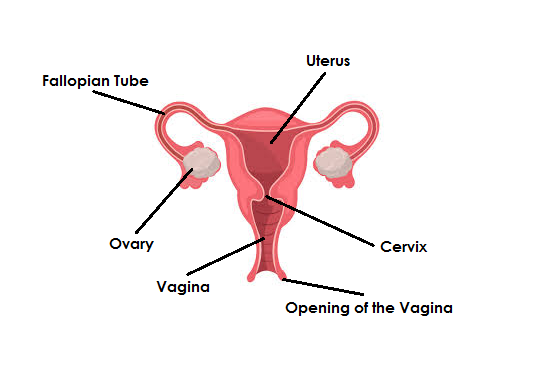What the main types are and how to prevent them
Gynecologic cancer is cancer that begins in a women’s reproductive organs that can be found right below the stomach and in-between the hip bones. Each reproductive organ plays an important role in preparing your body to have a child, also known as the female reproductive system. A women’s reproductive system include both internal and external reproductive organs. Internal organs are found inside your body, while external organs are found on the outer parts of your body.
External Reproductive Organs:
- Vulva
Internal Reproductive Organs:
- Uterus
- Ovaries
- Fallopian Tubes
- Vagina

It is estimated that 100,000 women are diagnosed with gynecologic cancer in the United States each year. Family history, obesity, age, and HPV are important risk factors for gynecologic cancer.
What are the different types of gynecologic cancer?
There are many different types of gynecological cancer – each type having different signs and symptoms. The main types of gynecologic cancer include:
- Cervical Cancer
Begins in the cervix, which is the lower, narrow end of the uterus.
- Ovarian Cancer
Begins in the ovaries, which are located on each side of the uterus.
- Uterine Cancer
Begins in the uterus, the pear-shaped organ in a women’s pelvis where a baby grows.
- Vaginal Cancer
Begins in the vagina, which is the hollow, tube-like channel between the bottom of the uterus and the outside of the body.
- Vulvar Cancer
Begins in the vulva, the outer part of the female genital organs.
What are the symptoms of gynecologic cancer?
Each type of gynecological cancer has its own signs and symptoms, and can be different per person. Not only is it important to know and recognize the warning signs and symptoms of gynecologic cancer, but it is important to know what is normal (and what isn’t) for your body. However, symptoms can be caused by other health problems. If you are experiencing any symptoms that last two weeks or longer, talk to a healthcare provider. The only way to know for sure if you have gynecologic cancer is seeing a healthcare provider.
What can I do to prevent gynecologic cancer?
Screening tests are important to look for a disease before there are any symptoms. As a result, finding cancer early can lead to treatment being more effective. Unfortunately, there are no simple and reliable ways to screen for any gynecological cancers, except for cervical cancer. Therefore, this makes it even more important to know the warning signs and symptoms of gynecologic cancer. If you have a greater chance of getting gynecologic cancer, talk to a healthcare provider to learn what you can do to help reduce your chances.
Cervical cancer screening includes routine pap and HPV tests. For more information about cervical cancer, check out our blog posts: Cervical Cancer Research: The Basics and What is the HPV and Why It’s Important.
There are many different types of gynecologic cancer, each with their own signs and symptoms. While there is no simple or effective screening test, knowing the warning signs and symptoms is the best thing you can do for finding gynecologic cancers early. Take control today and find a healthcare provider near you to talk about other ways you can prevent gynecologic cancer.




